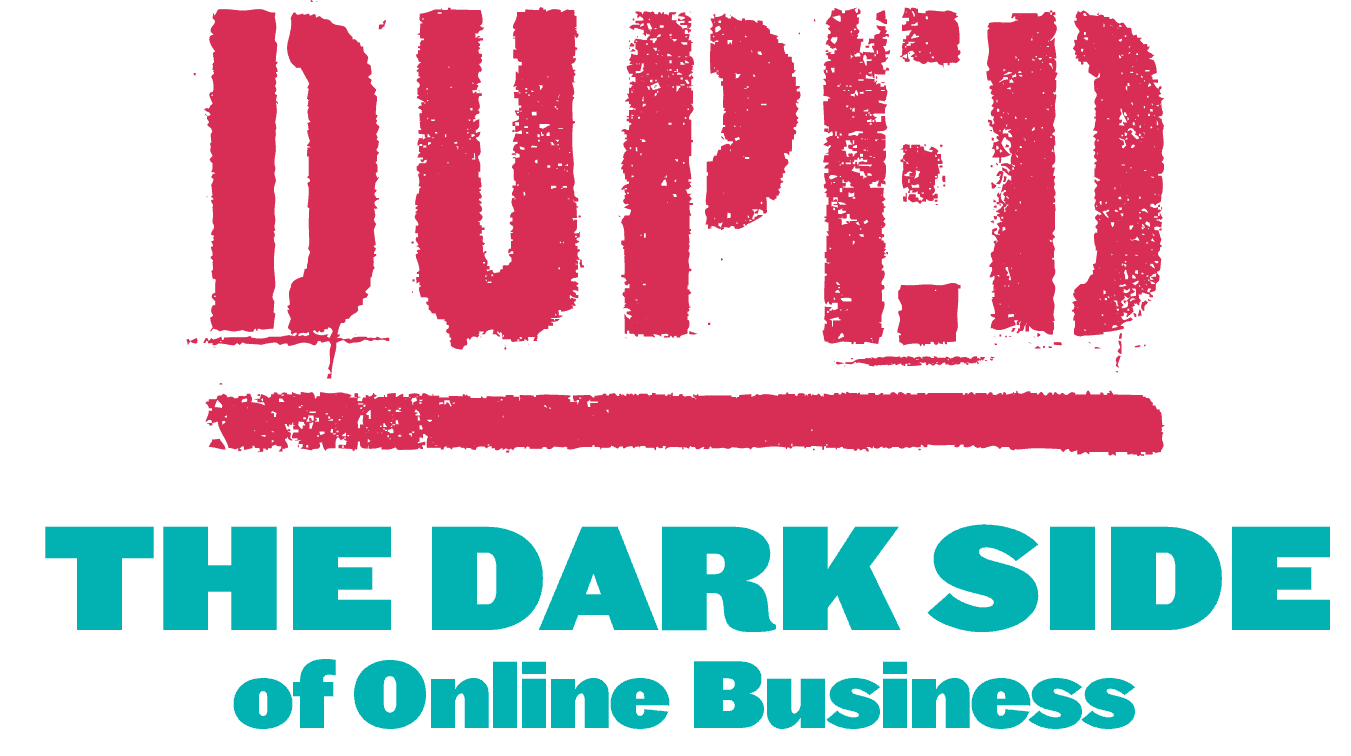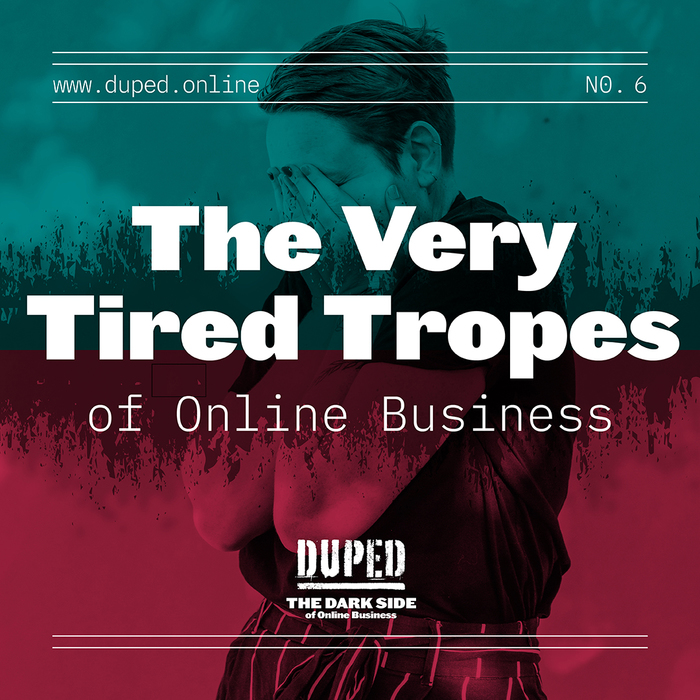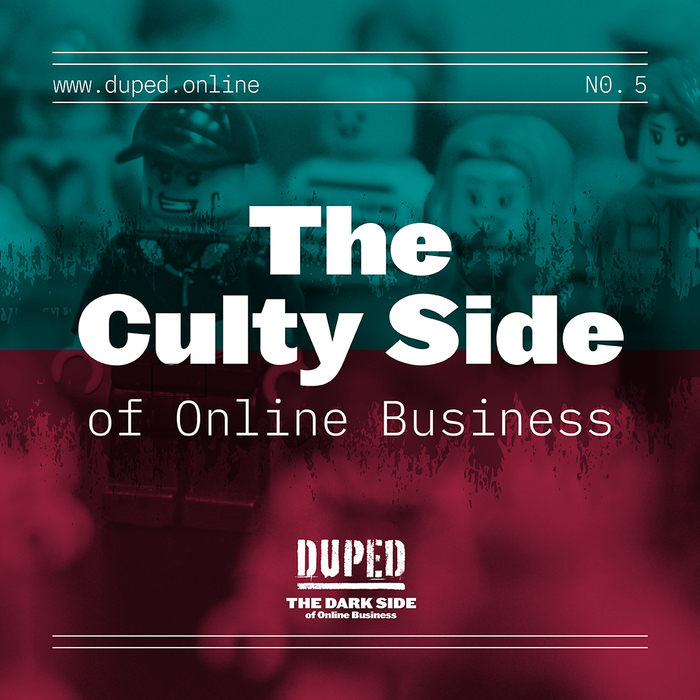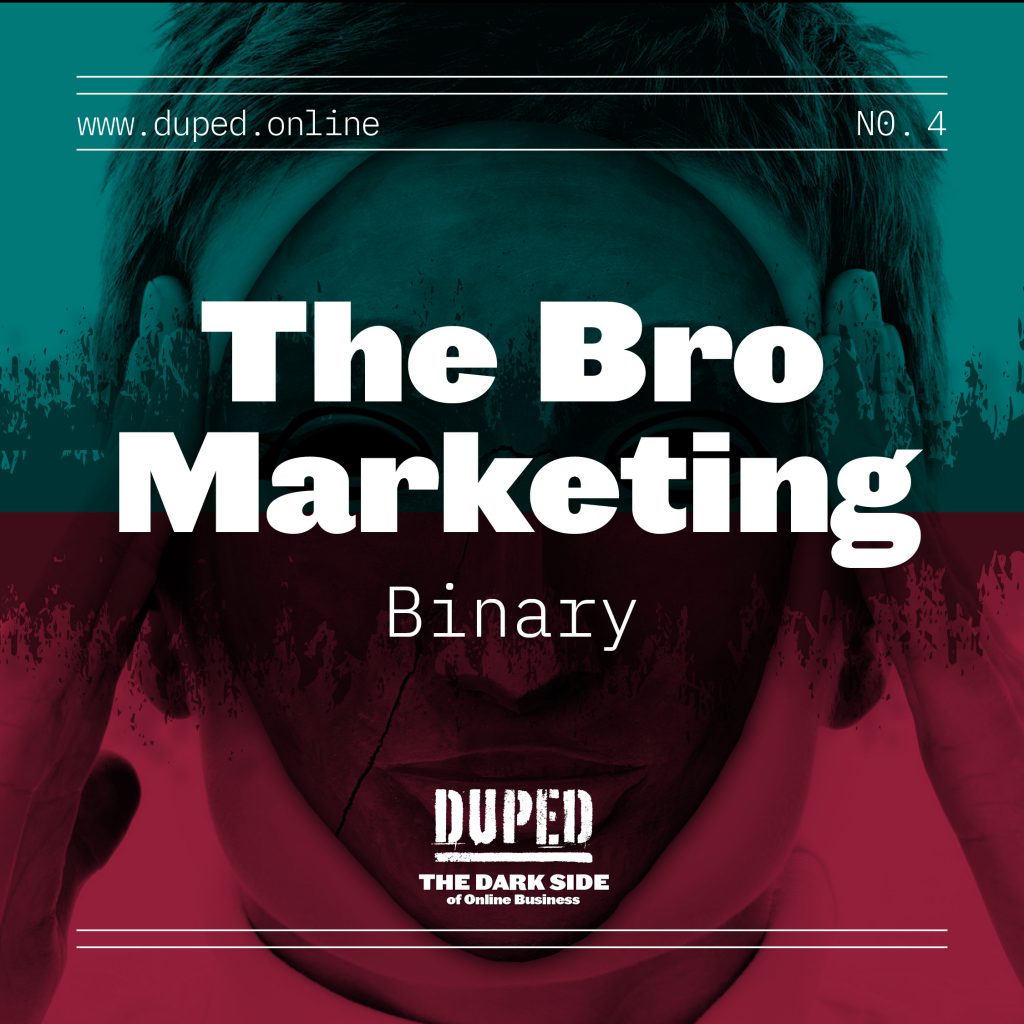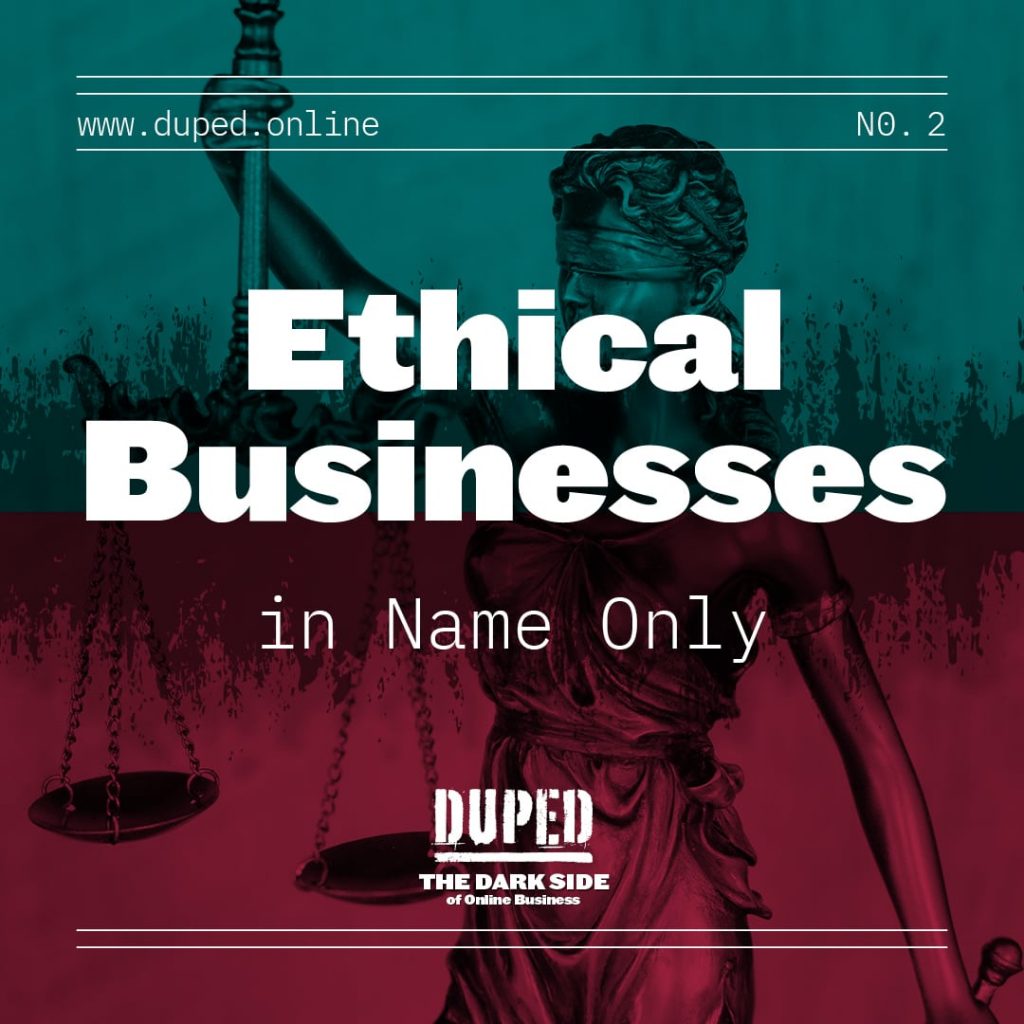
The Entrepreneurial Industrial Complex
Have you ever felt like owning a business was all the rage? Or struggled with the fact that there’s an entire industry designed to sell us things to help us grow our businesses?
In this episode, we’re diving into the Entrepreneurial Industrial Complex, including why so much of entrepreneurship is about identity and consumption, not actually doing business.

As a business owner, there are many reasons and motivations for why we decide to go down this path.
I was driven by both a need for flexibility along with the fact I got the entrepreneur gene. I was always coming up with business ideas from a young age, and she knew even working in corporate, that eventually, she would be her own boss.
I was self-employed for a really long time before she dared to consider herself an entrepreneur. Coming from the tech startup world, she had a sense of the differences between creating a job for herself and true entrepreneurship.
My viewpoint really shifted when she started working in the online business world where the word entrepreneur was thrown around constantly.
The longer we’re in this industry, we realize that entrepreneurship itself is an industry, which brings us to what we want to talk about today.
The Ideology of Entrepreneurialism
Welcome to what Patrick J. McGinnis termed the “Entrepreneurship Industrial Complex” in his 2017 book, The 10% Entrepreneur.
This is an entire industry designed to sell you the dream of entrepreneurship. And while we’ve talked about this topic in different forms so far on Duped, today we’re getting into the nuts and bolts of it using an amazing research paper and their findings to frame up our exploration of this topic.
Towards an Untrepreneurial Economy? The Entrepreneurship Industry and the Rise of the Veblenian Entrepreneur Hartman, Spicer and Krabbe (2019)
There’s a lot in this paper that we could talk about, but let’s start with their findings around the industry itself.
An entire industry has been created around the ideology of entrepreneurship, which mass produces and markets products as a form of conspicuous consumption. These products are “focused on encouraging and supporting the pursuit of entrepreneurial opportunities by providing goods and services specifically for entrepreneurs.”.
This is a US $10 Billion dollar industry, and that’s been growing 10% a year since the late 1980s. This includes conferences and events, books, magazines, infomercials, training seminars, consulting and advisory services, web-based content and more.
This ideology and industry make it socially acceptable to “start businesses and get rich from doing so”, and engage what Jones and Spicer in their 2009 book, Unmasking the Entrepreneur called a “one-sided cultural celebration of entrepreneurs”.
One of the key findings of this paper is that the existence of this industry designed to sell us products increases the number of people pursuing entrepreneurship but “lowers entrepreneurial performance and survival chances”.
As sobering as that is, it was incredibly validating to see in writing exactly what I’ve been thinking and talking about for years. The problems in this industry are many, but they’re rarely talked about and this research helps make sense of the status quo of online business.
Meet the Veblenian Entrepreneur
This research introduces us to the concept of the Veblenian Entrepreneur, or wantrepreneur.
Thorstein Veblen was an economist and sociologist who coined the concept of conspicuous consumption, which is the term used to describe the practice of consumers purchasing to signal status or display wealth.
The paper labels entrepreneurs consuming the products of this industry as Veblenian as they’re “driven primarily by the desire to build an identity of being an entrepreneur”. The idea is that it’s “socially attractive” to be an entrepreneur.
What’s really interesting about this part of it for me, and I feel like it’s not really talked about enough, is that for you to have the money to make these purchases to consume these products, there’s a certain level of privilege inherent in that.
We joke about rich husbands or trust funds, but this paper backs that up in a big way by talking about how the idea that entrepreneurship is accessible to everyone is a myth.
The research they share from Bell et al (2018) and Marinoni & Voorheis (2019) show how “gains from an entrepreneurial activity are concentrated in the top of income distribution, implying a broader picture of unequal chances of entrepreneurial success”.
Is This Really the Path to Success?
If you look at the prevailing messaging for products and services in this industry, which are designed to support you in building your business, there’s a focus on how this is the path to wealth and freedom.
In 2010, Hayward et al shared a paper titled Beyond Hubris: How Highly Confident Entrepreneurs Rebound to Venture Again which is shared in the Hartmann et al research.
Hayward et al shared that positive results are “picked out and given significantly more emphasis than more negative information”.
The truth is that in this industry, on the whole, outcomes are skewed. In many ways, we’re being sold this idea that entrepreneurship will be fulfilling and help us reach our goals when really, it’s about convincing us to buy something.
This ties in with what’s called Survivorship Bias, which according to DecisionLab is a “cognitive shortcut that occurs when a visible, successful subgroup is mistaken as an entire group, due to the failure subgroup not being visible.”
We don’t see the failures, so we think we’re going to be super successful. And the industry perpetuates this with its storytelling and use of testimonials.
The findings shared in this paper around failure were pretty stark. The one that really stood out to me is that on the whole “entrepreneurs have lower lifetime earnings than wage earners” (From Does Entrepreneurship Pay? Barton Hamilton, 2020.)
It’s a far cry from the make millions message and marketing that we’re inundated with day in, day out. This type of oversimplification means more people enter the market, and that lowers overall quality, and we actually become less entrepreneurial.
There’s this message we see all the time of what Hartman et al from this paper have termed “persistence regardless of performance”, and they discuss how when people perform poorly, they think they need more support and products.
They keep consuming more and more products and services because they think they should be able to make things work. And for the people selling these offers, that works for them as it helps them increase their bottom line.
In short, celebrity entrepreneurs have zero reasons to stop with a lot of these business practices as wantrepreneurs and Veblenian entrepreneurship works in their favor.
As the paper points out “failure can fuel further growth and expansion of the Entrepreneurship Industry”.
When Failure Isn’t an Option
Something that stuck with me from the paper that ties in here is how in-group/out-group differences make it hard to exit. We bake “entrepreneur” into our identity through our work and investing in this way, which makes it harder to say, “You know what? This isn’t for me.”.
The online business world really perpetuates this with the way corporate or other jobs are portrayed and the overall glorification of entrepreneurship as a righteous path. And again, it serves them to market in that way as it reinforces that you “should” stay on this path.
To be clear, I never ever judge someone for deciding this isn’t the path for them. When someone decides to exit, I don’t see it as a failure at all, but a smart decision.
“Veblenian Entrepreneurs can, however, be trapped in vicious recursive cycles of failure, escalating consumption, positive peer responses and distortion of market signals that make them persist in ventures that would have been best abandoned.”
Plus, there’s the psychological toll of this entrepreneurial failure. The paper walks through how it can have significant consequences from negative emotions to grief to mental health conditions.
What You Really Need to Know About Entrepreneurship
While this has been a fascinating ride through the research, we need to make this practical for you, as we’re not about bitching about the problems in this industry but giving you potential solutions and an idea of what to watch for.
The point of this episode is to help you gain a better understanding of the economic and societal factors at play in this industry. And how we can’t take the word of those operating in this industry at face value.
After all, as the study shares, as an industry, we emphasize “characteristics like overconfidence, risk tolerance and optimism.”.
While we share that optimism, we want to be realistic about these forces at play. Entrepreneurship is not for everyone, and when people are selling products/services to support it they’re hopelessly biased.
This is compounded by two key things that this research calls out that impact all of us.
First, many people starting these businesses “lack deep knowledge of the business” and “little to no substantial business experience”.
That’s a wake-up call for all of us. When we’re the consumer, we need to take the time to vet everyone we work with. As we’ve said before, anyone can claim to do anything, and often if we look past the surface we’ll quickly find that the depth of experience and skills of the person selling to us are lacking.
For example, I see a lot of people teaching service business owners who literally offered services for a year or less. They weren’t successful by any definition for any sustained amount of time. Getting booked out for one six-month period doesn’t make you an expert, and someone teaching you based on that has a very limited skill set to offer you.
The other part of this that’s fascinating is how the research points out the role of image in all of this. Because of conspicuous consumption, we’re dealing with people who “appear more like successful entrepreneurs than actual innovation-driven entrepreneurs who might be less concerned with outward appearances”.
This is where the role of the luxury lifestyle, being an influencer, and even high ticket like we talked about a couple of episodes ago come into play. Image is deceiving, and just because someone looks like they’re successful, it doesn’t mean they are.
With access to financial resources, anyone can look like they’re the real deal by buying that image.
Takeaways on the Entrepreneurship Industrial Complex
To wrap up, we wanted to leave you with some specific takeaways so this wasn’t just a total bummer of an episode.
If anything, let this research and its findings help to confirm what you may have thought along the way on your journey. We definitely found it reassuring.
Now, let’s dive into specific takeaways:
Results Not Typical: The success stories we hear in this industry are often atypical. We need to watch for survivorship bias as we’re prone to thinking that those stories are the only ones and not see the failures.
The Identity of Entrepreneur is for Sale: Anyone can buy this identity, and that means each one of us needs to be discerning. And remember, success as an entrepreneur also skews in favor of those who start with more financial resources.
Failure is an Option: There are no gold stars for suffering through. Entrepreneurship is not the best option for everyone, and sticking it out may have a negative impact on your finances, relationships and overall health.
The Industry Traps Us: The Entrepreneurship Industrial Complex is designed to trap us in a cycle of conspicuous consumption. As consumers, we need to think carefully about our investments and if we really need them or if there are other factors at play.
Low Quality and Lack of Knowledge: As this industry continues to grow we’ll likely see more and more people entering which lowers overall quality. As consumers, it means we need to discern who we should (and shouldn’t trust) and as business owners, we need to work to find ways to communicate our experience and expertise.
Links For This Episode:
- Coffeezilla interview with Dr Hartmann
- The 10% Entrepreneur
- Research Paper: Towards an Untrepreneurial Economy?
- Unmasking the Entrepreneur
- Who Becomes an Inventor In America? (Bell et al – 2018)
- Who Gains From Creative Destruction? (Marinoni & Voorheis – 2019)
- Beyond Hubris: How Highly Confident Entrepreneur Rebound to Venture Again
- Survivorship Bias
- Does Entrepreneurship Pay?
- The High Ticket Hustle Episode of Duped
- The Luxury Life Episode of Duped
- The Truth About Influencers and Experts Episode of Duped
- Brittany Berger
- The Tricky Business of Testimonials (Trusted Podcast)
- Tara Newman
- Conspirituality
- Nailah King
Join the

Patreon

for only $7/month and get a
monthly bonus episode,
behind-the-scenes content
and more.
Recent Episodes of Duped
- « Previous
- 1
- …
- 4
- 5
- 6
